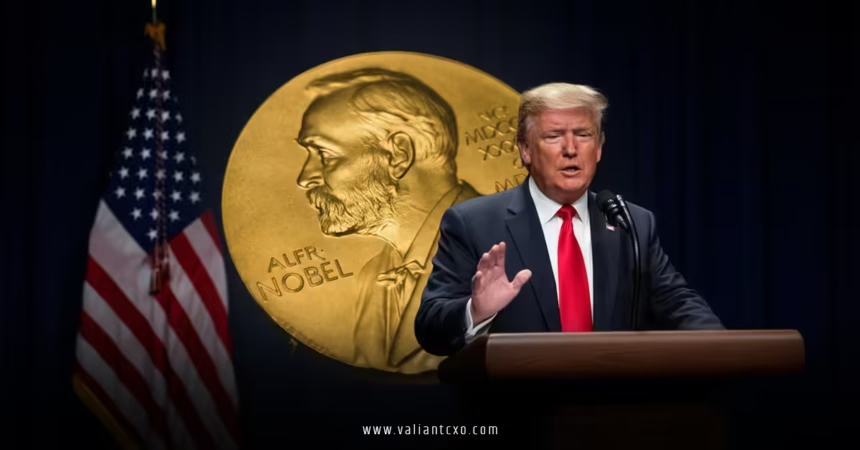Nobel Peace Prize impact on global conflicts has sparked debates for over a century. Is it a transformative force that reshapes the world’s approach to peace, or just a shiny medal that fades into the background of ongoing wars? Since its inception in 1901, the Nobel Peace Prize has honored individuals and organizations striving to end conflicts, promote harmony, and champion human rights. But how much does it really influence global conflicts? Let’s dive into this complex topic, exploring its history, influence, limitations, and the ripple effects it creates across the globe.
What Is the Nobel Peace Prize, and Why Does It Matter?
The Nobel Peace Prize, established by Alfred Nobel’s will, is awarded annually to those who have “done the most or the best work for fraternity between nations, for the abolition or reduction of standing armies, and for the holding and promotion of peace congresses.” It’s a prestigious accolade, often shining a spotlight on unsung heroes or amplifying the voices of global movements. But the Nobel Peace Prize impact on global conflicts isn’t just about the award itself—it’s about the message it sends, the momentum it builds, and the scrutiny it invites.
Imagine the prize as a megaphone. When someone like Malala Yousafzai or Nelson Mandela receives it, the world listens—at least for a moment. It elevates their cause, whether it’s education for girls or dismantling apartheid. But does that megaphone keep blasting, or does it fizzle out after the ceremony? That’s where the real question lies.
A Brief History of the Nobel Peace Prize
To understand the Nobel Peace Prize impact on global conflicts, we need to look at its roots. Alfred Nobel, a Swedish inventor and philanthropist, created the prize to counterbalance his legacy as the inventor of dynamite—a tool often associated with destruction. Since 1901, the Norwegian Nobel Committee has awarded it to over 100 individuals and organizations, from Theodore Roosevelt to the United Nations.
Some winners, like Martin Luther King Jr. in 1964, used the platform to push for civil rights, while others, like the 1991 recipient Aung San Suu Kyi, faced criticism later for their actions (or inaction) in conflicts. The prize has never been a stranger to controversy, but its ability to highlight peace efforts remains unmatched.
How Does the Nobel Peace Prize Impact Global Conflicts?
The Nobel Peace Prize impact on global conflicts manifests in several ways. It’s not a magic wand that ends wars overnight, but it can shift perspectives, influence policy, and inspire action. Let’s break it down.
Amplifying Voices for Peace
When the Nobel Committee awards the prize, it’s like throwing a spotlight on a dark stage. Suddenly, the world sees the struggles of people like Wangari Maathai, who won in 2004 for her environmental activism in Kenya. Her work wasn’t just about planting trees—it was about empowering communities and reducing resource-driven conflicts. The Nobel Peace Prize impact on global conflicts here was tangible: it brought global attention to environmental justice, encouraging similar movements worldwide.
The prize amplifies voices that might otherwise be drowned out. For instance, the 2018 winners, Denis Mukwege and Nadia Murad, focused on sexual violence in conflict zones. Their award didn’t stop wars, but it forced governments and organizations to confront an often-ignored issue, leading to increased funding for survivor support programs.
Influencing Policy and Diplomacy
Can a single award change how nations approach conflict? Sometimes, yes. The Nobel Peace Prize impact on global conflicts often lies in its ability to nudge policymakers. Take the 1997 award to the International Campaign to Ban Landmines (ICBL). The prize came just before the Ottawa Treaty, which banned anti-personnel mines. The ICBL’s recognition gave it the clout to push governments into signing the treaty, reducing the use of these deadly weapons in conflicts.
Similarly, when the European Union won in 2012, it was a nod to decades of fostering peace in a historically war-torn region. The award reinforced the EU’s role in stabilizing conflicts, encouraging it to double down on diplomatic efforts in places like the Balkans.
Inspiring Grassroots Movements
The Nobel Peace Prize impact on global conflicts isn’t limited to elites or policymakers—it trickles down to the grassroots. When someone like Malala wins (2014), young activists worldwide feel empowered. Her fight for girls’ education in Pakistan inspired countless others to challenge oppressive systems, indirectly reducing tensions in communities where education access fuels conflict.
Think of the prize as a spark. It doesn’t start the fire, but it can ignite movements that burn bright enough to challenge systemic issues like poverty, inequality, or oppression—root causes of many global conflicts.
Limitations of the Nobel Peace Prize Impact on Global Conflicts
Let’s be real: the Nobel Peace Prize isn’t a cure-all. Its impact on global conflicts has limits, and it’s worth exploring why.
Symbolic vs. Substantive Change
Sometimes, the Nobel Peace Prize impact on global conflicts feels more symbolic than transformative. When Barack Obama won in 2009, it was for his “extraordinary efforts to strengthen international diplomacy.” But critics argued he hadn’t achieved enough to justify the award, especially as conflicts in Iraq and Afghanistan raged on. The prize can raise expectations that winners can’t always meet, leading to disillusionment.
It’s like giving someone a trophy for running a marathon before they’ve crossed the finish line. The gesture is nice, but it doesn’t guarantee results.
Controversial Choices and Backlash
Not every winner is universally celebrated, and that can dilute the Nobel Peace Prize impact on global conflicts. Aung San Suu Kyi’s 1991 win was hailed for her nonviolent resistance in Myanmar, but her later silence on the Rohingya crisis sparked outrage. The prize’s credibility took a hit, making some question its ability to influence conflicts when winners fall short of expectations.
The Nobel Committee’s choices can also feel out of touch. Awarding the prize to organizations like the UN or the EU, while significant, doesn’t always resonate with people on the ground in conflict zones. It’s hard to feel the impact when the winner is a faceless institution rather than a relatable figure.
Temporary Spotlight
The Nobel Peace Prize impact on global conflicts often fades after the initial buzz. Media coverage spikes, speeches are made, and then… crickets. For example, the 2011 winners—Ellen Johnson Sirleaf, Leymah Gbowee, and Tawakkol Karman—brought attention to women’s roles in peacebuilding. But how many of us still talk about their work today? The prize’s influence depends on sustained action, which isn’t always guaranteed.

Case Studies: Nobel Peace Prize Impact on Global Conflicts in Action
To really grasp the Nobel Peace Prize impact on global conflicts, let’s look at a few standout examples.
Desmond Tutu (1984): Uniting Against Apartheid
Archbishop Desmond Tutu’s award came at a critical moment in South Africa’s apartheid struggle. The Nobel Peace Prize impact on global conflicts here was profound—it galvanized international support for sanctions against South Africa’s regime. Tutu’s global platform helped pressure the government, contributing to apartheid’s eventual collapse. His work showed how the prize could amplify moral authority in conflicts.
Liu Xiaobo (2010): A Double-Edged Sword
Liu Xiaobo’s win for his human rights activism in China was a bold move by the Nobel Committee. The Nobel Peace Prize impact on global conflicts in this case was mixed. It drew attention to China’s human rights abuses, but it also hardened the government’s stance, leading to Liu’s imprisonment until his death. The prize can sometimes escalate tensions rather than resolve them, especially in authoritarian regimes.
The Tunisian National Dialogue Quartet (2015): Stabilizing a Nation
After Tunisia’s 2011 revolution, the country teetered on the brink of chaos. The Quartet’s 2015 win highlighted their role in mediating dialogue between rival factions. The Nobel Peace Prize impact on global conflicts here was direct: it bolstered Tunisia’s fragile democracy, preventing a slide into civil war. It’s a rare example of the prize having a measurable, immediate effect.
Why Does the Nobel Peace Prize Still Matter?
Despite its flaws, the Nobel Peace Prize impact on global conflicts remains significant. It’s a symbol of hope, a call to action, and a reminder that peace is possible, even in the darkest times. It pushes us to ask: Who’s fighting for peace today? Who’s being overlooked? By shining a light on these questions, the prize keeps the conversation alive.
It’s not perfect, but it’s a start. The prize challenges us to think beyond borders, to support those risking their lives for peace, and to hold leaders accountable. In a world where conflicts seem endless, that’s no small feat.
Conclusion: A Catalyst for Change
The Nobel Peace Prize impact on global conflicts is a mixed bag of inspiration, influence, and imperfection. It amplifies voices, shapes policies, and sparks movements, but it’s not a silver bullet. From Desmond Tutu’s fight against apartheid to Malala’s crusade for education, the prize has left an indelible mark on the world. Yet, its limitations—symbolic gestures, controversial choices, and fleeting attention—remind us that peace requires more than awards. It demands action, persistence, and collective will. So, let’s celebrate the prize for what it is: a beacon of hope that challenges us to keep pushing for a less conflict-ridden world.
FAQs About the Nobel Peace Prize Impact on Global Conflicts
How does the Nobel Peace Prize impact global conflicts in practical terms?
The Nobel Peace Prize impact on global conflicts often lies in amplifying peace efforts, influencing policy, and inspiring grassroots movements. For example, the 1997 award to the ICBL led to the Ottawa Treaty, banning landmines.
Can the Nobel Peace Prize actually stop wars?
While the Nobel Peace Prize impact on global conflicts can be significant, it rarely stops wars directly. It raises awareness and pressures governments, but lasting peace requires sustained effort beyond the award.
Why do some Nobel Peace Prize winners face criticism?
Some winners, like Aung San Suu Kyi, face backlash when their actions don’t align with the prize’s ideals. This can weaken the Nobel Peace Prize impact on global conflicts by sparking debates over its credibility.
Who decides the Nobel Peace Prize winners?
The Norwegian Nobel Committee, appointed by Norway’s parliament, selects winners based on their contributions to peace. Their choices shape the Nobel Peace Prize impact on global conflicts.
How can I support the causes highlighted by the Nobel Peace Prize?
You can support Nobel-recognized causes by donating to organizations like the ICBL, volunteering for human rights groups, or spreading awareness about the Nobel Peace Prize impact on global conflicts.
Read More:valiantcxo.com


